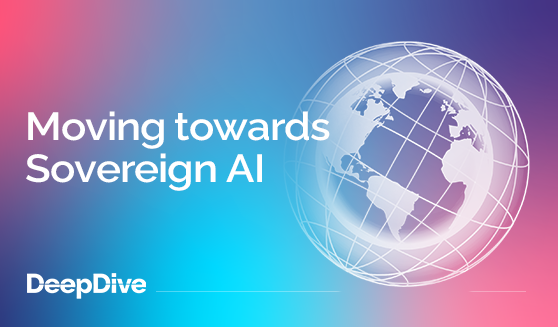
Moving towards Sovereign AI

Welcome to the 6 new deep divers who joined us since last Wednesday. If you haven’t already, subscribe and join our community in receiving weekly AI insights, updates, and interviews with industry experts straight to your feed.
DeepDive
Your weekly immersion in AI.
When we interviewed DeepFest 2024 speaker Joseph Wehbe (Chief Artificial Intelligence Ecosystem Builder at DAIMLAS), we asked him if there’s anything that worries him about AI and the future of work – if organisations and governments don’t get it right.
He said:
“Leaders must realise that there is a shift towards Sovereign AI – that is, homegrown AI that’s built in a localised ecosystem, because each region has local talent, local problems to solve, local capital, local research, local small businesses, local universities, community colleges, and technical schools, local ethical and regulatory considerations, that all impact the future of work.”
Why is this shift happening – and what does it mean for countries around the world?
Homegrown AI will be critical for future economies
Increasingly, nations are recognising Sovereign AI as a way to boost their competitiveness in global economies, and cultivate the spirit of innovation in their societies.
As outlined by the World Economic Forum, developing their own AI technologies and capabilities can allow countries to:
- Automate routine tasks/job roles, and provide more support to creative and knowledge workers – which could increase productivity across a wide range of industries.
- Stimulate momentum and growth in their deep technology industries and the economic sectors linked to tech.
- Build a workforce of skilled AI professionals that can position the country at a competitive advantage.
- Position themselves as leaders in the global digital economy – opening up a vast expanse of opportunities for the future.
- Gain digital sovereignty; which could protect national interests as tech continues to shape more of our political and economic realities.
And a key aspect of national security
As well as a positive boost for social and economic outcomes, Sovereign AI is a concern for security reasons, too. A growing number of countries are focused on the importance of homegrown AI ecosystems to increase their capacity to protect national interests, and advance those interests through the strategic use of AI.
Localised ecosystems will reduce each nation’s reliance on AI technologies from other countries, which increases security and protects against supply chain disruptions. And importantly, homegrown AI enables countries to maintain control of their critical data, critical infrastructure, and critical technologies.
Aligning AI with different cultures
From a cultural perspective, developing Sovereign AI allows nations to embed their own local values into the AI technologies they use for a wide range of purposes – instead of trying to fit AI systems that have been developed with a different worldview into and around their own cultural principles.
Homegrown AI can serve local languages and cultural needs more seamlessly; and even help to highlight a country’s cultural capital in global markets.
And importantly, developing localised AI systems enables countries to overcome the biases inherent in systems that have been imported from Silicon Valley.
“While emerging tech hubs can learn from Silicon Valley and other established hubs how they built their AI centres of excellence,” Wehbe added, “they must localise their AI building capabilities.”
Should all countries be developing Sovereign AI by now?
Wehbe pointed out that the private sector, SMEs, and industries are the drivers of momentum for AI talent and research.
“When more projects and opportunities are offered by them to the local talent, it builds capabilities overall in the community.”
“For countries that have not launched their national AI strategy – they must do so immediately. Because there is a generation of learners being left out if they don’t. Advanced AI hubs are quickly shifting from the knowledge economy to the Generative AI economy, and the longer they wait, the more they will be left behind.”
Do you think Sovereign AI is critical for all countries?
We want to know what you think. Open this newsletter on LinkedIn and share your perspective in the comment section – do you think homegrown AI systems will be necessary for a country’s future success?
